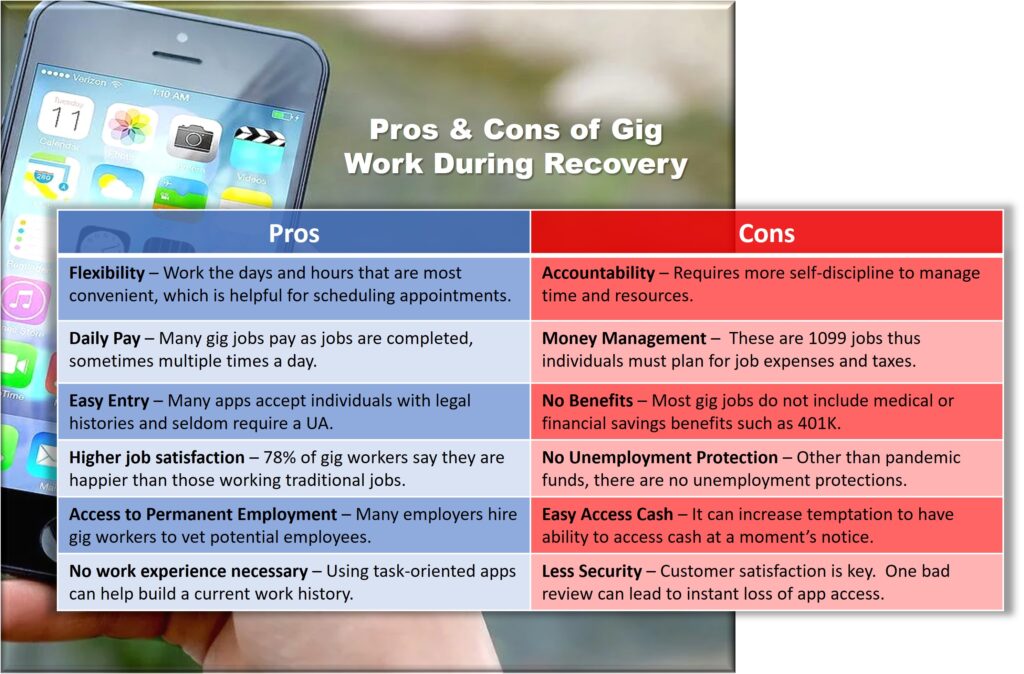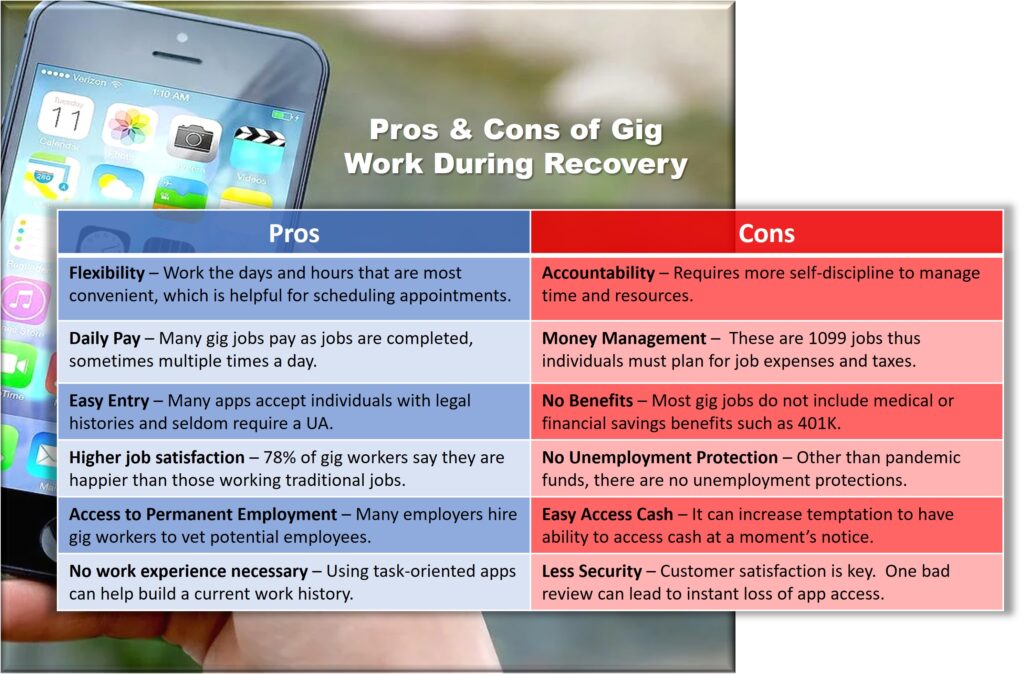Supporting Client Stability in a Gig Economy
By Carla Adams, BS, MDiv / Employment Specialist, BHG Denver Treatment Center
Frequently, clients beg me to find them a job starting yesterday. They are facing multiple barriers to success including limited skills, homelessness, legal concerns, transportation challenges, and no phone service.
I smile and say, “No problem. There’s an app for that!” Gig work can be a good source of primary and supplemental income for individuals struggling to make ends meet.
In a gig economy, temporary, flexible jobs are common, and companies hire more independent contractors and freelancers instead of full-time employees. In 2021, 38% of U.S. workers were involved in the gig economy. That is projected to grow to more than 50% by 2027. Generation Z (53%) and Millennials (40%) make up the largest portion of gig workers, while one-third of freelance workers at companies are older than 55 according to a 2021 Gallup Poll. As the workforce changes, it is important to understand the impact this has on individuals in recovery.

Wayne* was living in his car unable to find stable employment due to two felonies and gaps in his employment. He began using the Veryable.com app doing warehouse work for $150 to $180 per shift. He worked afternoon and evening shifts, allowing time for daily dosing and appointments. A furniture warehouse requested his services multiple times, eventually offering him a career position making $22 per hour with full benefits. He is now stable and looking for an apartment.
While pursuing a Computer Information Sciences degree, Aaron* became a freelancer on FIVERR.com and Upwork.com. After doing several smaller projects, he was hired as a long-term contractor on a government project. That allowed him to gain the skills and experience necessary to secure a full-time, lead position with an IT design firm making six figures annually.
Susan* has had a more challenging time working with the gig system. She selected multiple hospitality assignments through BlewCrew.com and cancelled for various reasons. She said it was too easy to cancel when she wasn’t feeling like working. Ultimately, she was blocked from the app due to lack of performance. Her Division of Vocational Rehabilitation counselor suggested that she may have less stress and greater potential for success seeking traditional employment.
With the significant trend toward gig work, it becomes more important to have conversations with our clients about their job goals. Here are a few ways you can help your clients thrive in the gig economy:
- Manage expectations: Encourage clients to research and explore realistic income potential, time requirements and other financial obligations to create realistic SMART goals.
- Create an accountability system: Include an employment-based goal in the treatment plan and follow-up on the individual’s success.
- Refer to a benefits counselor: Working the gig economy can generate significant income putting individuals’ benefits at risk. A benefits counselor provides guidance on maintaining benefits as income increases.
- Keep a list of Apps handy: There are gig jobs available for almost every industry from auto mechanics to exotic pet sitting.
Contact the Denver and Longmont Employment Specialists for additional resources and information.
*Names changed to protect confidentiality.

